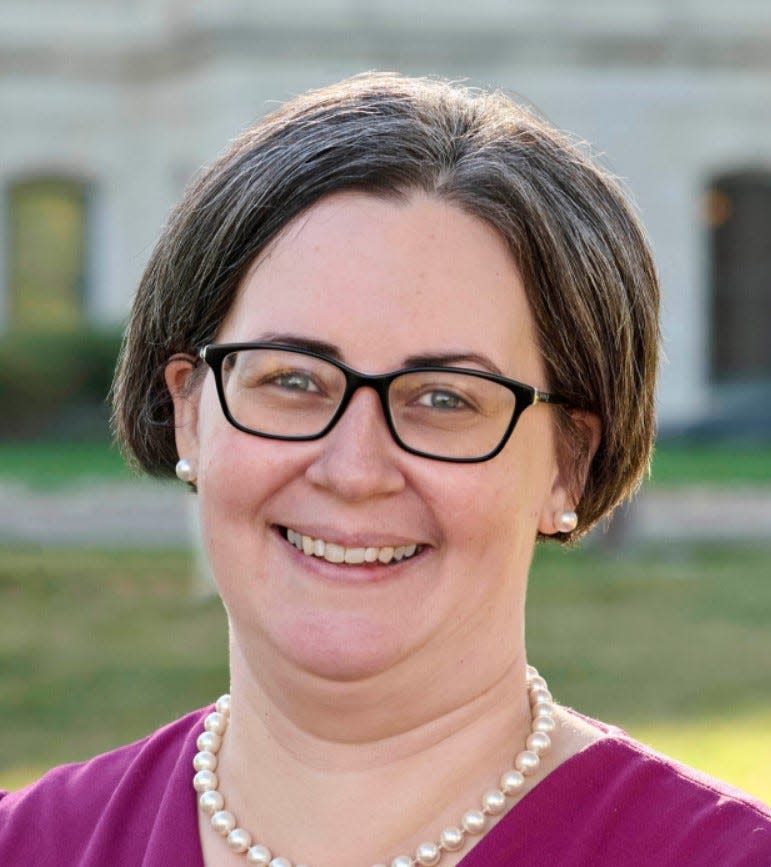Kansas lawmakers must do more to support policies to improve all Kansans' health outcomes

What sets up kids for success in life, long before they enter school? It begins with their health.
Healthy development — no matter the outcome of a child’s birth — starts from the beginning of their life through timely and regular access to affordable health insurance and care, screenings, therapies and treatments; healthy brain development; stability in housing and food access; and much more. Focusing on the health of kids early in life is more likely to reduce their health care costs when they become adults.
Kids aren’t born ready to take care of themselves. If we want kids to succeed from the very beginning, we must focus on ensuring their families are also succeeding and thriving. The health of parents and caretakers matters to the health of their children.
You may have heard the term “social determinants of health,” the collection of factors that also affect the ability and likelihood to be healthy. A robust system of supports for families positively influences their ability to access health care services and use them to their fullest benefit. Crucial public programs like housing, food access and resources, child care assistance, and transportation services should be prioritized and supported by policymakers. Too often, we see resistance by the Kansas Legislature to help these programs be accessible to families.
The health of kids and their families directly impacts their ability to go to school, work, and participate in their community, yet Kansas lawmakers have not done nearly enough to support policies that will improve all Kansans’ health outcomes. We’re not funding and prioritizing the systems that will help kids — and their families. If people want to see our kids succeeding and growing up healthy, we must change our priorities and where we focus our energy for solutions.
We all want people in our communities to get the health care services they need. But health starts with insurance access and affordability, which is a large hurdle for far too many Kansans.
About 38,000 Kansas kids do not have insurance coverage, according to The Annie E. Casey Foundation. This is a barrier that hinders parents’ ability to get their kids the care they need like regular checkups and immunizations.
Right now, Kansas parents who make less than 38% of the federal poverty level (just $8,760 a year for a family of three) can qualify for KanCare. But if that same family’s income is between $8,761 and $23,030 (100% federal poverty level for a family of three), the adults do not qualify for KanCare or premium assistance in the federal insurance exchange.
Despite 39 other states (plus the District of Columbia) expanding their Medicaid programs, the Kansas Legislature still refuses to expand KanCare, which would help tens of thousands of Kansans access coverage. Doing so would begin to remove an ever-growing barrier for many parents: making too much to qualify, but too little to access insurance on their own.
All Kansans deserve adequate health care, no matter their income, race, zip code, identity, or ability. Yet severe disparities continue to exist between races and ethnicities and in rural areas, particularly when it comes to infant and maternal mortality and health complications. Kansas must support, pass, and fund measures that investigate disparities in health outcomes and prevent these negative outcomes through targeted public health policy.
Increasing post-birth Medicaid coverage for new mothers from 60 days to 12 months was an important first step by the Kansas Legislature earlier this year, but Kansas must also continue to further invest in maternal and child health infrastructures and services like local health departments, the Tiny-K program and newborn screening.
New and seasoned lawmakers will return to the Statehouse in January. Kansas kids — and their future health and development — are counting on these policymakers to make Kansas a place where every child can fulfill their best potential.
Heather Braum is the health policy adviser for Kansas Action for Children.
This article originally appeared on Topeka Capital-Journal: Supporting Kansas families means preparing kids for lifelong success
